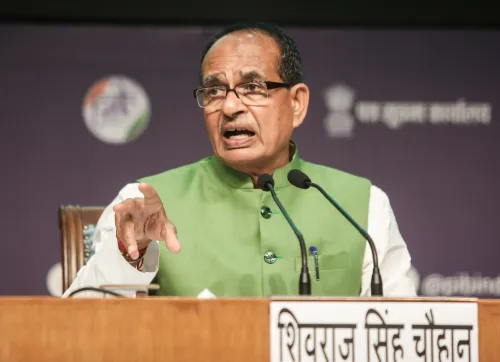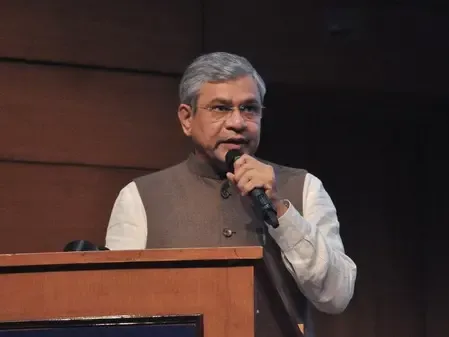How has India’s electronics component scheme attracted over Rs 1 lakh crore?

Synopsis
Key Takeaways
- Investment proposals worth Rs 1.15 lakh crore received.
- The scheme aims to enhance domestic production of electronic components.
- Job creation commitments exceed initial targets significantly.
- The application window for the capital equipment segment remains open.
- The initiative reflects global trust in India's manufacturing capabilities.
New Delhi, Oct 2 (NationPress) The Union Minister for Electronics and IT, Ashwini Vaishnaw, revealed on Thursday that the government has attracted investment proposals totaling Rs 1.15 lakh crore under the Electronics Component Manufacturing Scheme.
This initiative was launched to enhance domestic manufacturing of electronic components and devices in India.
Vaishnaw stated, "The investment applications exceeding Rs 1 lakh crore under this scheme clearly illustrate PM Narendra Modi's commitment to electronics manufacturing and the global trust India has built over the past 11 years. This trust is translating into investment, job creation, and increased production."
The minister noted that the proposals have surpassed initial expectations regarding investment, employment, and production goals set during the scheme's inception.
“The application period for the scheme concluded on September 30, and we have received investment proposals amounting to Rs 1,15,351 crore,” Vaishnaw mentioned.
He pointed out that while the government initially estimated around Rs 59,000 crore in investments, the final proposals have nearly doubled that figure.
The capital equipment segment of the scheme is still accepting applications.
The Union Cabinet approved the Electronics Component Manufacturing Scheme in March, allocating a budget of Rs 22,919 crore for six years.
The scheme aims to attract massive investments into the electronics component manufacturing sector, enhance domestic value creation, and integrate Indian firms into global value chains (GVCs).
It is designed to create a robust component ecosystem by providing targeted incentives to Indian manufacturers across various categories of components and sub-assemblies, thereby improving their scale and technological capabilities.
The initial targets of the scheme included Rs 59,350 crore in investments, Rs 4,56,500 crore in production, and the creation of 91,600 direct jobs along with numerous indirect employment opportunities, propelling India's growth in the electronics manufacturing domain.
Electronics and IT Secretary S. Krishnan highlighted that the proposals submitted under the scheme include pledges to generate employment for 1.41 lakh individuals, significantly exceeding the target of 91,600 jobs.









